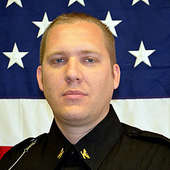Opinion
Suicide calls are on the rise
Saturday, September 5, 2015
Domestic calls, thefts, burglaries, and vehicle accidents are all common calls deputies respond to during their shifts, but there is another type of call that is becoming more and more common, and that is calls of suicidal subjects. Although we take these types of calls frequently, the amount of calls deputies have been responding to over the past few weeks has become alarming. These calls often come from a loved one or a friend, and in many cases even the person who is needing the help.
Just last week we responded to multiple calls of suicidal subjects, many of which were reported to have guns, and in one case shots were even fired by someone as deputies arrived on scene. Fortunately no one was hit, but the person did tell deputies they wanted their life to end. Most of the staff at the Sheriff's Office has received Crises Intervention Training through a partnership with the Nevada Police Department and that training is extremely vital in these situations.
Law enforcement officers receive some training on dealing with suicidal people, but they are often put in a difficult situation. Our job is to protect people, but what do you do when you are requested to respond to a location where a person has made threats to harm other people or themselves? And, by showing up, you could end up in a situation where protecting someone else or your self could result in force being used on the very person you were called to help in the first place?
The first thing that can be done for law enforcement is to provide the best training possible when it comes to dealing with people who have suicidal thoughts. When people are to the point that they have become violent towards others, or even themselves and deputies are running code to respond to a situation that has already started to spiral out of control, it is often called the "breaking point." In most cases, there were many signs leading up to this point that could have been prevented if those signs were detected and that person had received help.
According to the American Foundation for Suicide Prevention, there are over 650,000 suicide attempts each year that require medical attention, and 38,000 lives are lost each year to suicide. Law enforcement officers can continue to make a better impact on getting help to those in need by utilizing their training, but what can help even more is to recognize the signs of someone that may be in need of help before it gets to that "breaking point."
Early signs of suicide can include withdrawing from activities, isolating from family and friends, sleeping too much or too little, visiting or calling people to say goodbye, giving away prized possessions, and aggression. People who are contemplating suicide often display moods that include depression, loss of interest, rage, irritability, humiliation or anxiety. When someone displays a symptom that is not normal for their personality, the first ones that will be in the position to notice are friends and family.
We find many times after investigating a suicide that some of these signs were noticed by family or friends but they did not realize what the signs were leading up to. If you know someone that may need help or you have questions do not wait to call someone! There are people who want to help. You can find someone to talk to 24 hours a day by calling the National Suicide Prevention Hotline at 1-800-273-TALK (8255) or get more information by going to www.suicidepreventionlifeline.org. We have CIT trained deputies who are also willing to speak with anyone who would like to talk to them.

